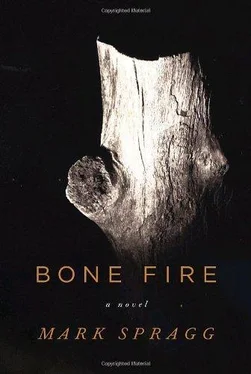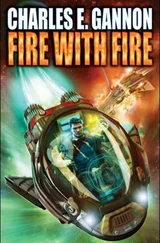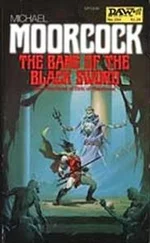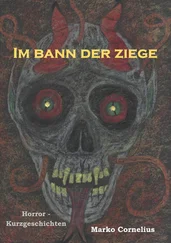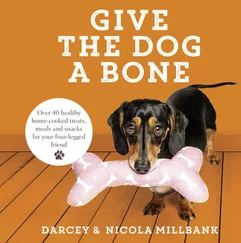“I always thought I’d like to go sailing on Lake Michigan,” she said, “and I never did.”
“Well, there you are.”
“Yes,” she said, “there I was, for sixty years. And I never once even swam in the lake.”
Einar nodded, fixing his gaze on the foot of the bed as though someone had settled there. Some other visitor. “I imagine she was easy to get along with. Your Alice,” he said. “I can’t see you staying with someone all those years and her not being easy to live with.” He looked back up at her.
“It was very easy.”
“That’s what I thought. I thought it must have been.”
They were quiet for a moment. He still held her hand.
“Do you think she would have liked it here?” he asked.
“I think so.”
“I think she could’ve gotten used to it. Maybe walking in the mountains. Maybe if the wind wasn’t blowing.” He turned her hand, smoothing it as though intending to read the lines in her palm. “McEban printed up a copy of her obituary for me. I read where she taught Eastern studies. That you both had.”
“Yes,” she said. “I retired, but Alice was still teaching.”
“That’s it. That’s what it said.”
“I didn’t imagine you’d know about all this. I thought I might have to explain everything about my life, and that you might not care.”
“Why wouldn’t I care?”
“I’ve been gone a long time, and I never called or wrote to tell you anything.”
He’d taken his glasses off, tapping them against his leg, and she slipped them out of his hand, setting them on the nightstand.
“I didn’t lift a finger to stay in touch,” she said. “It didn’t have to be like that.”
“It was both of us.”
She nodded in a remote sort of agreement, staring out the window so intently that Griff thought there must be something standing just past the glass, looking in at them, but there was only the bright, empty light of the afternoon.
“I thought you might not care for me because of Alice. Because of us being women.”
“I wouldn’t know anything about that.” His face was pinched, his breathing short and ragged. “What I wish is that Griff, or McEban or somebody, would’ve heard me say that your Alice would have fit in here just fine. That she might have liked a walk in the mountains now and then. I wish I would’ve said something like that out loud.”
She was crying now, not sobbing but crying steadily, and she leaned over to pull him away from his pillows, hugging him up against her. She cupped his head to her shoulder, rocking them, shushing like a mother would. Just an old woman holding an old man, maybe both of them remembering when they’d been young together in this very house, clinging to each other because they were frightened by something just beyond what they could express.
HE WAS UP on his knees in the truckseat, turned sideways, with the seatbelt slanting down under his arm and across his ribcage. “When the Boogeyman peeks in his closet,” he said, his voice chattering because the roadbed had deteriorated to a dry washboard, then he started giggling and couldn’t stop.
They jounced down through the cattleguard and he pivoted around facing forward, straining against the seatbelt like he’d fallen upon a guitar string, singing out, “Boing, boing, boing.”
“Goddamnit, Kenneth.”
“You don’t know, do you?” He was still giggling. “You don’t know what the Boogeyman was checking for?”
“Sit down like you should.”
McEban hunched forward over the steering wheel to let the air get at his back, and Kenneth sat down, crossing his arms over his chest. The dust they’d raised stood so thickly in the cab they appeared blurred to each other.
The boy announced: “You owe me a quarter for cussing.”
His feet didn’t quite reach the floormat and the dashboard was heaped up with catalogs and receipts, a single workglove, a pair of vise grips and an antenna cable McEban bought at the NAPA auto-parts in Sheridan, still shrink-wrapped because they decided they liked the radio better when it didn’t work, all of it coated with the reddish talc. The Sunday funnies from a Billings Gazette fluttered and snapped on the seat between them.
“The Boogeyman was checking to see if it was Chuck Norris who was in there.” His voice a shrill vibrato.
“I was going to say Chuck Norris.”
“I’ll bet you weren’t.” He pinched a quarter out of the coins in the ashtray, slipping it into his front pocket. “I can’t see where we’re going.”
“You know where we’re going. Look out the side window if you need something to see.”
“You were going to say Superman.”
“No, I wasn’t. If you’d have given me a minute I would’ve said Chuck Norris.”
Kenneth turned toward the window, opening his mouth, sticking his tongue out. The air tasted sweet, of red clover and sage, of the flowering cress that bordered the sloughs.
After breakfast McEban had perched him on a kitchen stool with a bath towel safety-pinned around his neck and given him a buzz cut. He’d used the Oster Turbo Clippers he’d bought at the Wal-Mart in Billings, and they were both anxious to see how it would turn out. Now the boy sat rubbing the bristle at the crown of his head.
“I like how it feels,” he said.
“I could freshen it every couple weeks if you want.”
“That’d be okay in the summer.” He still had his hands up, dabbing. “Could you make a pie out of clover?”
“I couldn’t.”
“Could somebody?”
“Maybe Chuck Norris could.”
The boy smiled, poking through the clutter on the dash until he found a pair of sunglasses. He wiped the lenses on his shirttail and put them on. “I don’t know why I can’t get up on my knees. You said if we ever got in a wreck the airbag would squish me no matter how I was sitting.”
“When did I say that?”
“When I was littler.”
“Well, you’re bigger now. You won’t squish if you’re sitting down like you are.”
Curtis Hanson was whipping weeds in the borrow ditch behind their row of mailboxes, his two stocky blue heelers jackknifing in the air at his sides, snapping at the flying weedstalks. Curtis waved and McEban waved back, turning onto the county road. It was hot enough that the macadam felt greasy under the tires and the truck slewed and caught.
“You know why Chuck Norris’s dogs pick up their own poop?”
“I think that’s probably something I knew last week.”
“I’ve told you this one before,” the boy said, staring right at him.
“You look like some kind of bug in those glasses.”
He lowered the glasses, narrowing his eyes, speaking each word distinctly: “Because Chuck Norris doesn’t take shit from anybody.”
“I think you better put that quarter back in the ashtray.”
They stopped in the alley behind the Ace Hardware and McEban backed around to the end of a rusted Quonset hut. The double doors were slid fully open on their tracks, below a faded sign reading JOEY’S WELDING. They dropped the tailgate, and Joey came out and shook McEban’s hand and then the boy’s and stood with them.
He wore a leather apron over a stained sweatshirt that was baggy in the elbows, the sleeves dotted with burn holes. They all stared at the broken sickle bar in the bed of the truck.
“You find the same rock you did last year?” Joey coughed productively and turned and spat against the side of the building.
“It was a different rock this time.”
“You think about buying new?” He wiped his mouth with the back of his hand.
“I would if you told me I had to. I’m not sure I can afford new.”
Joey nodded, leaning over the sidewall. His welding helmet, hinged back on his head, was skull-shaped and bright red with yellow flames painted on the sides to represent ears. He ran the pad of a thumb over a jagged end of the sickle bar. “I guess you won’t have to just yet.”
Читать дальше
